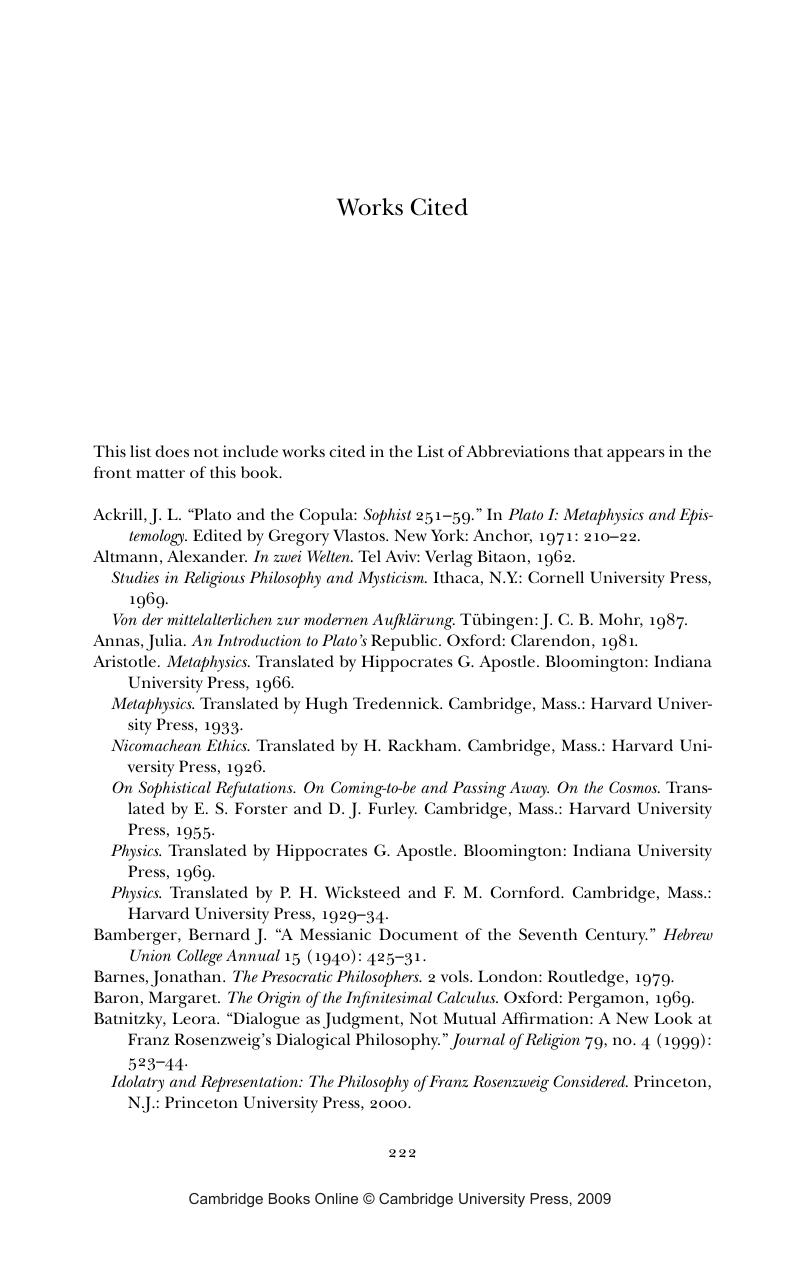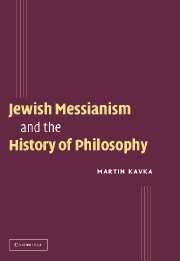Book contents
- Frontmatter
- Contents
- Acknowledgments
- List of Abbreviations
- Introduction: From Athens to Jerusalem
- 1 The Meontological Conundrum: Emmanuel Levinas and Emil Fackenheim on the Athens–Jerusalem Conflict
- 2 Beyond “Beyond Being”: Nonbeing in Plato and Husserl
- 3 Nonbeing as Not-Yet-Being: Meontology in Maimonides and Hermann Cohen
- 4 Nonbeing Ensouled, Nonbeing Embodied: Levinas versus Rosenzweig on the Role of the Other in Messianic Anticipation
- Conclusion: Deepening the Roots of the Jewish Meontological Tradition, or contra the Derridean “Messianic”
- Works Cited
- Index
- References
Works Cited
Published online by Cambridge University Press: 09 July 2009
- Frontmatter
- Contents
- Acknowledgments
- List of Abbreviations
- Introduction: From Athens to Jerusalem
- 1 The Meontological Conundrum: Emmanuel Levinas and Emil Fackenheim on the Athens–Jerusalem Conflict
- 2 Beyond “Beyond Being”: Nonbeing in Plato and Husserl
- 3 Nonbeing as Not-Yet-Being: Meontology in Maimonides and Hermann Cohen
- 4 Nonbeing Ensouled, Nonbeing Embodied: Levinas versus Rosenzweig on the Role of the Other in Messianic Anticipation
- Conclusion: Deepening the Roots of the Jewish Meontological Tradition, or contra the Derridean “Messianic”
- Works Cited
- Index
- References
Summary

- Type
- Chapter
- Information
- Jewish Messianism and the History of Philosophy , pp. 222 - 232Publisher: Cambridge University PressPrint publication year: 2004



